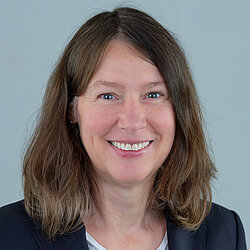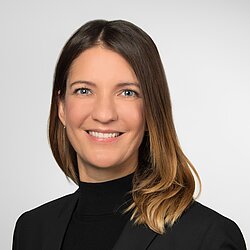The safeguarding of autonomous vehicles with regard to safety is an issue that automobile companies are currently having to deal with. Testing autonomous driving functions in real traffic with performance monitoring and trained operators behind the wheels, so-called field operational tests (FOT), are the most obvious approach, but will no longer be feasible with more complex active safety systems, as accidents and particularly fatal accidents are very rare, besides the danger and ethical aspects of testing such situations. To ensure that autonomous vehicles are at least as safe as human drivers, new strategies are needed to prove safety and reliability. One reasonable approach are Monte Carlo simulations, which, due to the arbitrarily high number of test runs, combinatorically cover a large number of possible scenarios. From this, as in medicine, a randomized controlled trial can be designed, by which a reference is compared with a treatment in order to derive a "before and after impact", including possible side effects. To this end, it is essential to simulate traffic scenarios with the necessary degree of detail, to model potential road users with realistic behavior and to assign meaningful probability distributions to variable parameters, which are "drawn" anew in each test run. These simulated test runs can then be understood as virtual FOT. This work aims to identify the relevant parameters and their causal relationships for micro-mobility riders focusing on the domain safety. Furthermore, a strategy is developed to obtain these parameters and derive stochastic models to describe subpopulations. Especially parameters in critical situations and human error are crucial and need to be modeled adequately, but also pose huge challenges due to limited data and ethical constraints. A micro-mobility model for traffic simulations, including probability distributions for significant parameters and human failure will be developed and implemented. Finally, a use case is defined and an effectiveness analysis of a traffic treatment (eg. V2X) is performed demonstrated using e-scooters.
Micro-mobility rider models for stochastic traffic safety simulations
MITGLIED IM KOLLEG
seit
Prof. Dr.-Ing. Werner Huber
Leiter CARISSMA Institute of Automated Driving (C-IAD)
Forschungsschwerpunkte:
- X-in-the-Loop-Testmethoden für automatisiertes Fahren
- Wirkungsbewertung durch virtuelle Feldtests und Simulation
- Generische Versuchsfahrzeugplattformen
Betreute Projekte:
- Micro-mobility rider models for stochastic traffic safety simulations
- The role of perceptual failure and degrading processes in urban traffic accidents - a stochastic computational model for virtual experiments
- Bestimmung der Merkmale automotiver Radare
- Synthesizing Adverse Weather Image Data to lmprove Object Detection in Bad Visibility Conditions
Prof. Dr.-Ing. Klaus Bogenberger
Forschungsschwerpunkte:
- Verkehrstechnik / Verkehrsmanagement
- Verkehrstheorie
- Verkehrssteuerung
Betreute Projekte:
- Lade- und Mobilitätsverhalten von batterieelektrischen Fahrzeugen und deren Einbindung in das Stromnetz als dezentrale Energiespeicher zur Erbringung von Systemdienstleistung
- Collective Perception using Roadside ITS Stations: Simulations on Traffic Safety and Efficiency of Urban Automated Driving
- Emissionsfreier öffentlicher Personennahverkehr
- Micro-mobility rider models for stochastic traffic safety simulations
- The role of perceptual failure and degrading processes in urban traffic accidents - a stochastic computational model for virtual experiments
- Generische Bestimmung des frei befahrbaren Raums für das autonome Fahren durch globale Risikominimierung einer lokalen dynamischen Fahrscene mittels eines prädiktiv-reaktiven Risikoprojektions- und -ausgleichsverfahren
- Reinforcement Learning for Traffic Light Optimization
Publikationen
Brunner, P., Denk, F., Huber, W., & Kates, R. (2019, October). Virtual safety performance assessment for automated driving in complex urban traffic scenarios. In 2019 IEEE Intelligent Transportation Systems Conference (ITSC) (pp. 679-685). IEEE.
Brunner, P., Löcken, A., Denk, F., Kates, R., & Huber, W. Analysis of experimental data on dynamics and behavior of e-scooter riders and applications to the impact of automated driving functions on urban road safety. In 2020 IEEE Intelligent Vehicles Symposium (IV) (pp. 219-225). IEEE.
Löcken, A., Brunner, P., & Kates, R. (2020, September). Impact of Hand Signals on Safety: Two Controlled Studies With Novice E-Scooter Riders. In 12th International Conference on Automotive User Interfaces and Interactive Vehicular Applications (pp. 132-140).

Pascal Brunner
Technische Hochschule Ingolstadt
Publikationen und Poster
Florian Denk, Felix Fröhling, Pascal Brunner, Werner Huber, Martin Margreiter, Klaus Bogenberger, Ronald Kates, 06/2023, Design of an Experiment to Pinpoint Cognitive Failure Processes in the Interaction of Motorists and Vulnerable Road Users, Anchorage, USA
Pascal Brunner, Vikram Singh, Florian Denk, Martin Margreiter, Klaus Bogenberger, Werner Huber, Ronald Kates, 12/2022, Safety impacts of rising urban micromobility: statistical analysis of e-scooter use and risky rider behavior in Ingolstadt, Germany, Santiago, Chile
Florian Denk, Pascal Brunner, Werner Huber, Martin Margreiter, Klaus Bogenberger, Ronald Kates, 10/2022, Assessment of traffic safety interventions using virtual randomized controlled trials: potential of connected and automated driving including V2X for collision reduction at urban intersections, Macau, China, DOI:10.1109/ITSC55140.2022.9921764
Johannes Lindner, Andreas Keler, Georgios Grigoropoulos, Patrick Malcom, Florian Denk, Pascal Brunner, Klaus Bogenberger, 10/2022, A coupled driving simulator to investigate the interaction between bicycles and automated vehicles, Macau, China, DOI:10.1109/ITSC55140.2022.9922400
Johannes Lindner, Georgios Grigoropoulos, Andreas Keler, Patrick Malcom, Florian Denk, Pascal Brunner, Klaus Bogenberger, 06/2022, A mobile application for resolving bicyclist and automated vehicle interactions at intersections, Aachen, Germany, DOI: 10.1109/IV51971.2022.9827439
Pascal Brunner, Tetmar von dem Bussche-Hünnefeld, Florian Denk, Klaus Bogenberger, Werner Huber, Ronald Kates, 01/2022, An E-Scooter Safety Experiment -Design, Methodology and Results, Washington, United States
Brunner Pascal, Löcken Andreas, Denk Florian, Kates Ronald, Huber Werner, 2020, Analysis of experimental data on dynamics and behavior of e-scooter riders and applications to the impact of automated driving functions on urban road safety, IEEE Intelligent Vehicles Symposium (IV), Las Vegas, US
Denk F., Huber W., Brunner P., Kates R., 2020, The role of perceptual failure and degrading processes in urban traffic accidents: a stochastic computational model for virtual experiments, 2020 IEEE 23rd International Conference on Intelligent Transportation Systems (ITSC), Rhodes, Greece
Keler, Andreas; Denk, Florian; Brunner, Pascal; Grigoropoulos, Georgios; Malcolm, Patrick; Bogenberger, Klaus, 2021, Varying Bicycle Infrastructures - An Interconnected Simulator Study for Inspecting Motorist-Cyclist Conflicts, DSC 2021 - 20th Driving Simulation & Virtual Reality Conference (DSC 2021)


